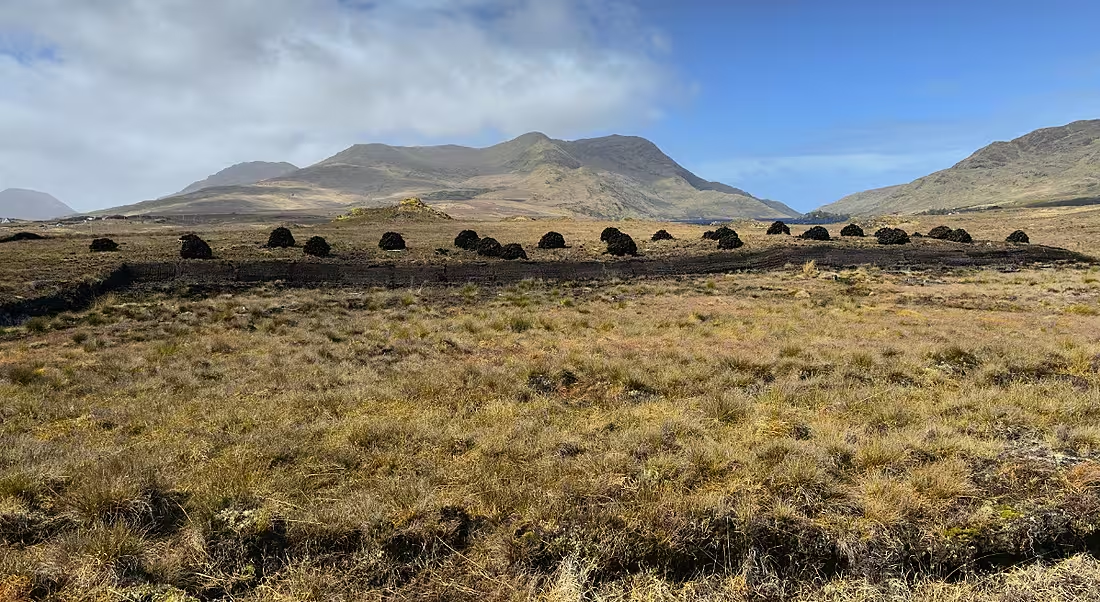The Government’s Just Transition Plan aims to help workers impacted by the decision to close two peat power plants in the midlands.
The Government announced plans today (11 November) to create new, sustainable jobs for the midlands as part of its Just Transition Plan.
The plan promises to facilitate workers impacted by last week’s decision to accelerate the exit from peat, which will see the closure of two peat power plants, with “long-term, sustainable employment for the midlands”.
New opportunities
New jobs and retraining opportunities have been cited as the crux of the plan, with 400 direct and indirect jobs to be created to retrofit homes in the region, starting with social homes, and up to 100 new jobs through the National Parks and Wildlife Service to rehabilitate bogland.
Bord na Móna will also be prioritising job creation, promising 100 new direct and 150 new indirect jobs to help develop renewable energy assets by 2023, and another 100 in new recycling operations.
Finally, new green business projects hold potential for a further 150 to 300 positions, the Government said.
Minister for Communications, Climate Action and Environment Richard Bruton, TD, said: “The government has been working for months to ensure that we fulfil the promise in the Climate Action Plan to deliver a just transition for workers and for regions. I am acutely aware of the impact that an accelerated exit out of peat will have on workers and the midlands region more broadly.”
Moving away from peat
The decision to close the Shannonbridge and Lanesboro plants was announced by the ESB last week, after An Bord Pleanála refused planning permission for the Offaly power station to co-fire with peat and biomass.
Peat is currently used in three power plants in the country to generate electricity. The accelerated exit from the resource will mean that at least 1.25m tonnes of carbon will be saved each year and emissions will reduce by up to 9m tonnes up to 2027.
The two midlands plants will close at the end of 2020, rather than co-firing until 2027 as previously planned. The remaining peat plant, owned by Bord na Móna, has planning permission until 2023 to co-fire peat with biomass.
The ESB has agreed to contribute €5m to the Just Transition Fund, increasing its total value to €11m. Alongside retraining and reskilling workers, local communities and businesses in the midlands will be assisted in adjusting to the low carbon transition.
As it currently stands, €5m will be set aside for bog restoration and rehabilitation, which will restore protected raised bogs to their natural habitat. Meanwhile, €20m will be used to deliver new models to group housing upgrades together, as set out in the Climate Action Plan.
‘Defining challenge of our generation’
Minister for Finance, Public Expenditure and Reform, Paschal Donohoe, TD, said: “The Government acknowledges the extent and impact of last Friday’s news on the communities affected. Now is the time to redouble our efforts to ensure that new business is generated to replace the jobs that will be lost and to prepare the workforce for the opportunities that lie ahead.
“Government will support the midland communities who will be affected by the low carbon transition at every step of this journey. Climate change is without doubt the defining challenge of our generation.
“Meeting this challenge will be impossible without difficult decisions and trade-offs but we will do it with the supports in place to ensure a Just Transition to a safer, cleaner and more environmentally conscious future.”
Bog restoration
The Government has been engaging with the European Commission to put in place an extensive Bord na Móna bog rehabilitation programme. The programme will rehabilitate 77,000 hectares of bogs used for harvesting peat for electricity generation.
Minister for Culture, Heritage and the Gaeltacht, Josepha Madigan, TD, explained the necessity of bog restoration for Ireland’s climate action strategy, and named emerging roles that will result from the move, such as machine operators, engineers, hydrologists, ecologists, site supervisors, dam installers and community liaison personnel.




